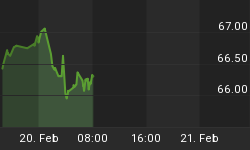Whether it’s businesses losing money by not harnessing the ultimate power of huge data, investors changing the way they let their money be managed, or the government luring high-tech firms to its defense line-up in exchange for big influence in Washington, artificial intelligence is beyond making waves.
So much so that the Massachusetts Institute of Technology (MIT)—the AI pioneer—thinks the field requires its own college, and it’s investing $1 billion to make that happen in the biggest single investment by a U.S. university in artificial intelligence to date.
“AI in particular is reshaping geopolitics, our economy, our daily lives and the very definition of work,” MIT president L. Rafael Reif wrote in a letter announcing the new internal college.
“It is rapidly enabling new research in every discipline and new solutions to daunting problems. At the same time, it is creating ethical strains and human consequences our society is not yet equipped to control or withstand.”
Artificial intelligence is set to become one of the biggest job sectors in the country, and the key isn’t simply to focus on AI learning—it’s to focus on combining key fields with AI. MIT wants biologists, chemists, political scientists, historians and linguists on board here—and it wants them to learn how to apply machine learning to their respective disciplines.
Rafael Reif calls them “bilinguals”. Related: Saudi Stocks Plummet As Foreign Investors Bail
MIT’s new college will be opened in September 2019, utilizing existing campus buildings--and by 2022 it is slated to have its own new space.
Stephen A. Schwarzman, the CEO of private equity firm Blackstone, pitched in $350 million, ensuring that the college would be named after him.
The college will include 50 new faculty positions, nearly doubling the current number of staff focused on the technology. It will span not just technical research in the field, but also delve into the ethical, geopolitical and social implications AI will have as it reshapes labor markets, business practices and state security.
MIT also has the race to AI domination with China in mind.
It’s a race that many increasingly feel China will win.
Earlier this month, the MIT Technology Review quoted prominent Beijing-based investor Kai-Fu Lee as saying that the U.S. could fall behind China because of Washington’s complacency on the issue.
In this respect, the U.S. is its own worst enemy, Lee told MIT Technology Review, because it fails to prioritize investment in fundamental AI research. China’s advantage is a state-run one, while in the U.S. commercial companies steal all the raw talent.
“A next set of technologies [is needed] to overcome the limits of deep learning. Commercial companies aren’t going to focus on these things.”
Related: Crypto And Blockchain Acquisitions Hit Record High
MIT hopes to help fill that gap, and while the $1-billion planned investment is its biggest, it’s not its first. In the past year, MIT as made several investments in expanding its study of AI, including a partnership with IBM last fall for a 10-year, $240 million investment in a new lab to advance AI hardware, software, and algorithms.
Earlier this year, MIT launched Intelligence Quest, an initiative to discover the very foundations of human intelligence and “drive the development of technological tools that can positively influence virtually every aspect of society”.
The message is clear: It has to be universities, not companies, in the AI driver’s seat if the U.S. hopes to successfully compete with China, and until academics get paid as much as their commercial counterparts, it’s not likely to happen.
“Can there be a gigantic GPU farm that gives professors as much computing power as Google has?” Lee asks MIT Technology Review. “Can you use the National Institute of Standards and Technologies to create a gigantic database that will neutralize the advantages of Facebook?”
By Michael Kern for Safehaven.com
More Top Reads From Safehaven.com:

















